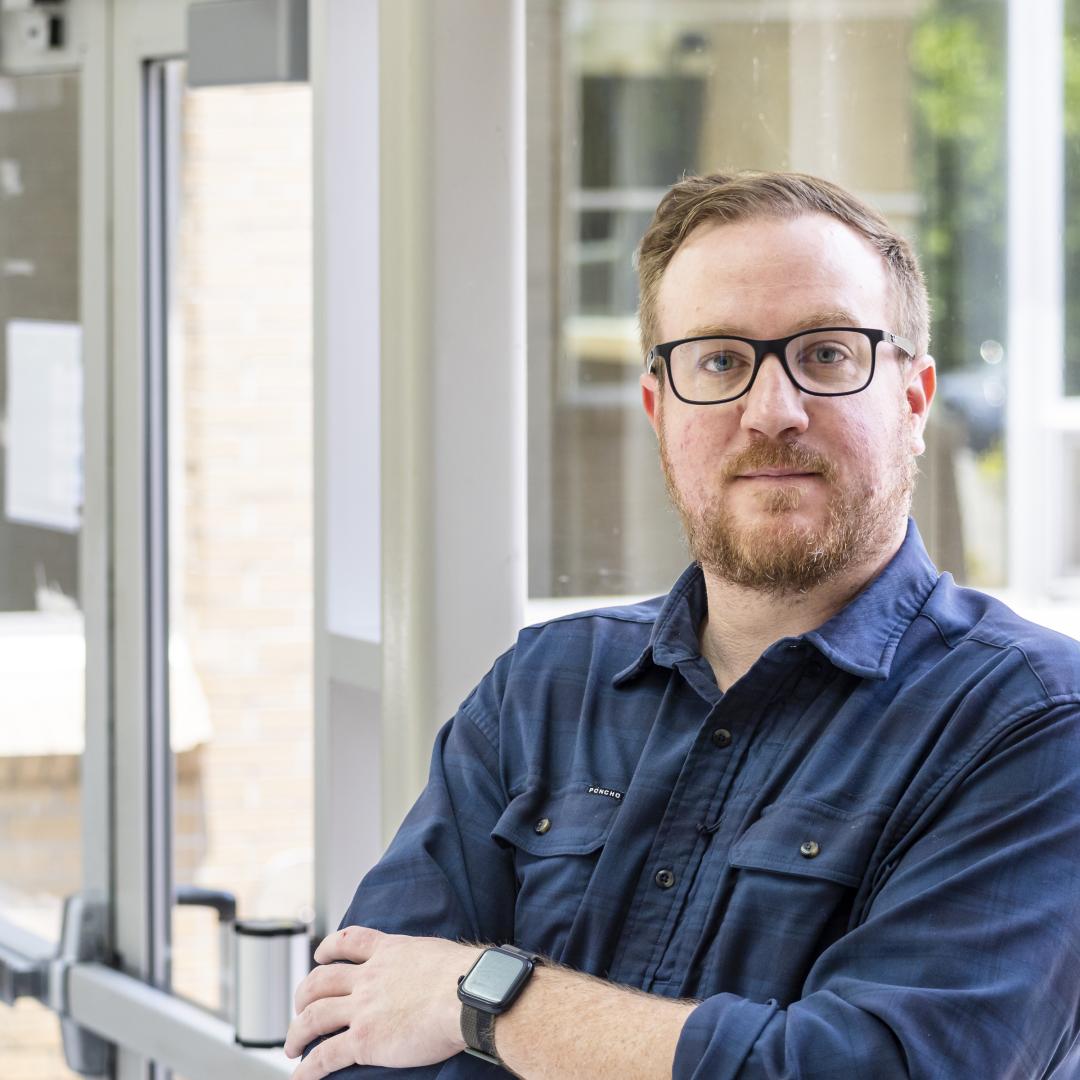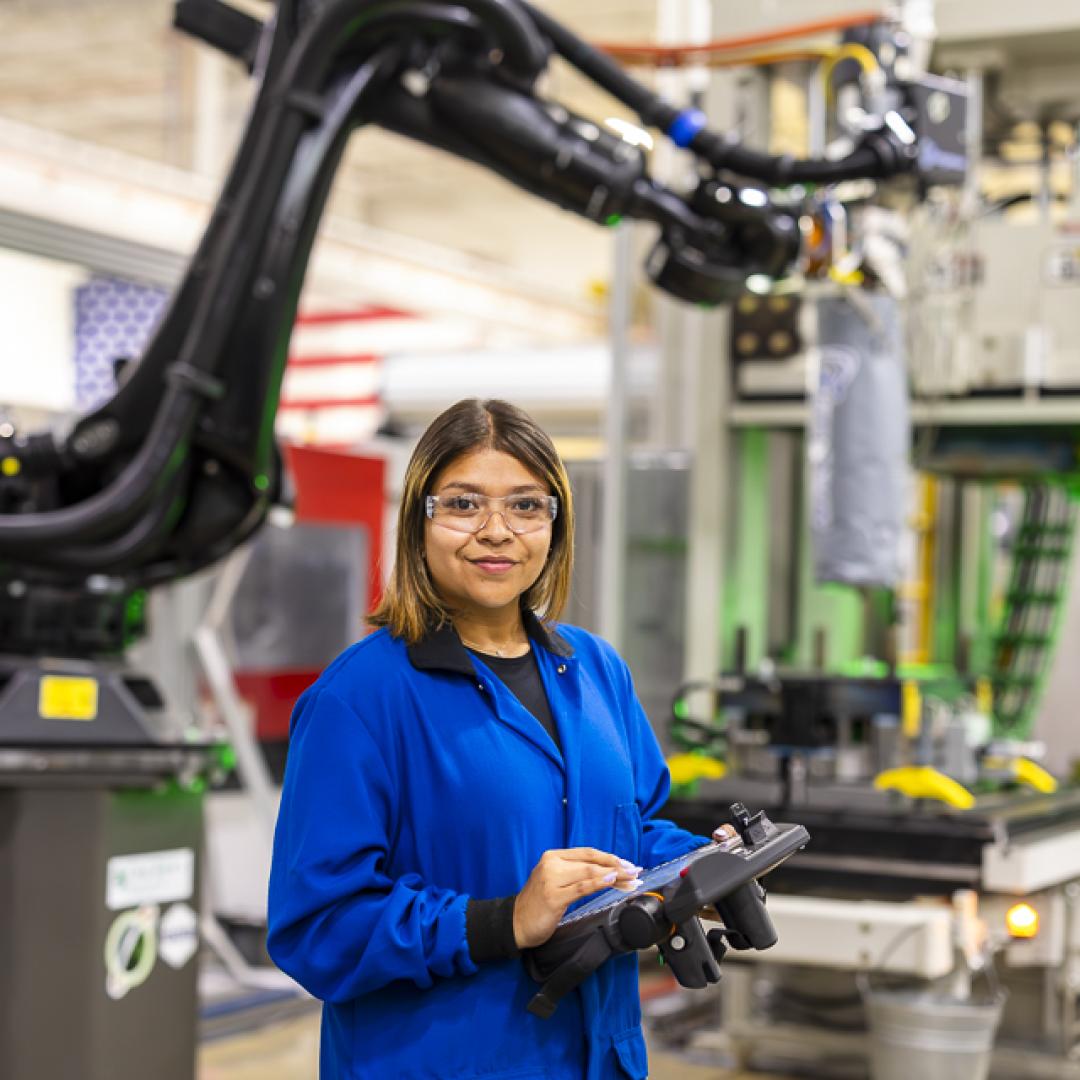
Filter News
Area of Research
- Biology and Environment (13)
- Building Technologies (3)
- Clean Energy (45)
- Climate and Environmental Systems (1)
- Computer Science (1)
- Electricity and Smart Grid (1)
- Fuel Cycle Science and Technology (1)
- Functional Materials for Energy (1)
- Fusion and Fission (1)
- Isotopes (1)
- Materials (11)
- Materials for Computing (1)
- National Security (35)
- Neutron Science (2)
- Nuclear Science and Technology (4)
- Supercomputing (13)
News Topics
- (-) Buildings (57)
- (-) Mercury (12)
- (-) Molten Salt (8)
- (-) National Security (65)
- 3-D Printing/Advanced Manufacturing (124)
- Advanced Reactors (34)
- Artificial Intelligence (94)
- Big Data (57)
- Bioenergy (92)
- Biology (100)
- Biomedical (59)
- Biotechnology (22)
- Chemical Sciences (66)
- Clean Water (30)
- Climate Change (101)
- Composites (28)
- Computer Science (192)
- Coronavirus (46)
- Critical Materials (27)
- Cybersecurity (35)
- Decarbonization (80)
- Education (4)
- Element Discovery (1)
- Emergency (2)
- Energy Storage (109)
- Environment (196)
- Exascale Computing (38)
- Fossil Energy (6)
- Frontier (43)
- Fusion (55)
- Grid (65)
- High-Performance Computing (87)
- Hydropower (11)
- Irradiation (3)
- Isotopes (53)
- ITER (7)
- Machine Learning (48)
- Materials (144)
- Materials Science (141)
- Mathematics (9)
- Microelectronics (3)
- Microscopy (51)
- Nanotechnology (60)
- Net Zero (14)
- Neutron Science (131)
- Nuclear Energy (109)
- Partnerships (46)
- Physics (62)
- Polymers (33)
- Quantum Computing (35)
- Quantum Science (69)
- Renewable Energy (2)
- Security (24)
- Simulation (49)
- Software (1)
- Space Exploration (25)
- Statistics (3)
- Summit (58)
- Sustainable Energy (129)
- Transformational Challenge Reactor (7)
- Transportation (97)
Media Contacts
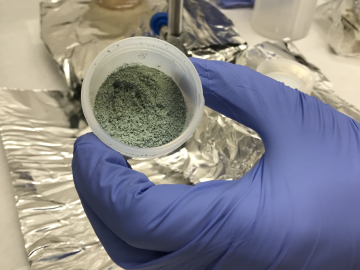
ORNL researchers used the nation’s fastest supercomputer to map the molecular vibrations of an important but little-studied uranium compound produced during the nuclear fuel cycle for results that could lead to a cleaner, safer world.
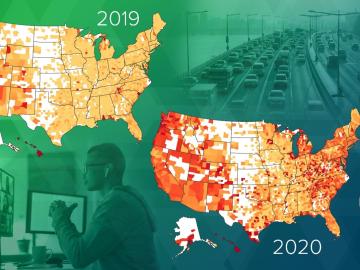
Researchers at Oak Ridge National Laboratory have empirically quantified the shifts in routine daytime activities, such as getting a morning coffee or takeaway dinner, following safer at home orders during the early days of the COVID-19 pandemic.
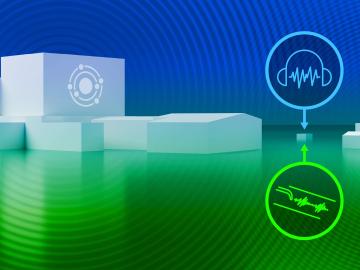
An Oak Ridge National Laboratory team developed a novel technique using sensors to monitor seismic and acoustic activity and machine learning to differentiate operational activities at facilities from “noise” in the recorded data.
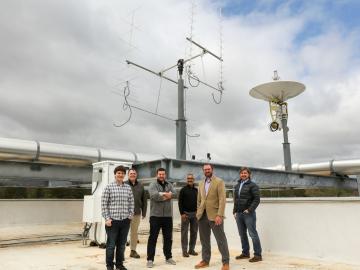
Oak Ridge National Laboratory is debuting a small satellite ground station that uses high-performance computing to support automated detection of changes to Earth’s landscape.
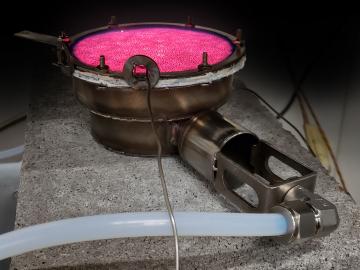
A prototype cooking appliance developed by Oak Ridge National Laboratory uses a 50% blend of hydrogen and natural gas, offering an alternative to safely reduce emissions that contribute to the nation’s carbon footprint.

Every day, hundreds of thousands of commuters across the country travel from houses, apartments and other residential spaces to commercial buildings — from offices and schools to gyms and grocery stores.
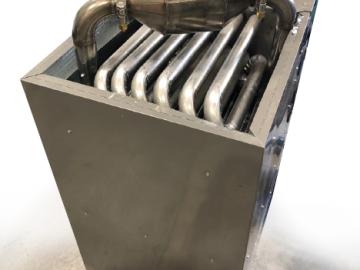
Oak Ridge National Laboratory researchers have developed a novel solution to reduce the environmental impact of natural gas-condensing furnaces commonly used in U.S. homes.
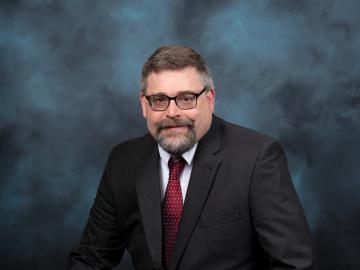
The American Society of Heating, Refrigeration and Air-Conditioning Engineers, or ASHRAE, selected Oak Ridge National Laboratory’s Brian Fricke as one of 25 members elevated to fellow grade during its 2022 winter conference.
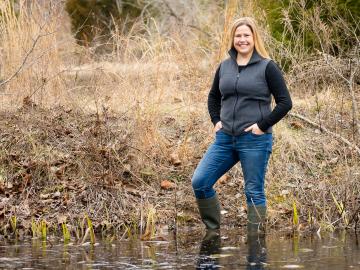
Spanning no less than three disciplines, Marie Kurz’s title — hydrogeochemist — already gives you a sense of the collaborative, interdisciplinary nature of her research at ORNL.
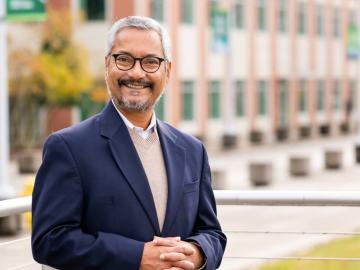
ORNL’s Budhendra “Budhu” Bhaduri has been elected a fellow of the American Association of Geographers. The honor recognizes Bhaduri as “a world leader in innovation, development and application of research in human dynamics, geographic data science, remote sensing and scalable geocomputation.”


